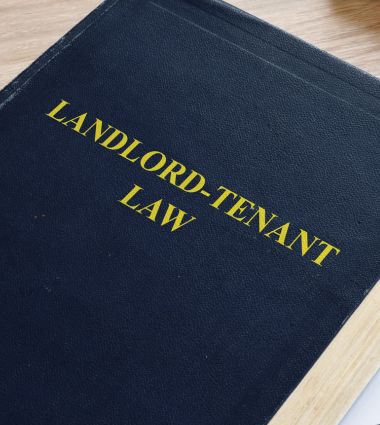Ways for Real Estate Lawyers to Transfer Property
Property transfers are one of the most important legal steps in real estate transactions. Whether a property is being sold, gifted, inherited, or transferred through a trust, the process must follow strict legal requirements to ensure ownership is valid and enforceable. In Canada, real estate lawyers play a central role in facilitating these transfers while protecting the rights of buyers, sellers, and other parties involved.
Understanding the legal methods used by real estate lawyers to transfer property can help property owners navigate transactions confidently and avoid costly legal issues.
Understanding Title and Ownership Law in Canada
In Canada, property ownership is governed by provincial legislation and land registry systems. Ownership is established through title, which represents the legal right to possess, use, and transfer real property.
Title Ownership
Title ownership confirms who legally owns a property and outlines any rights, restrictions, or interests attached to it. These may include mortgages, liens, easements, or restrictive covenants. A clear title is essential for any lawful transfer of property.
Title Registration
Each province maintains a land registry or land titles system that records property ownership and interests. Registration provides public notice of ownership and establishes priority among competing claims. Real estate lawyers ensure that ownership changes are properly registered to make them legally binding.
Transfer of Title
The transfer of title involves legally conveying ownership from one party to another. This process requires properly drafted legal documents and compliance with provincial laws. Real estate lawyers manage this process to ensure accuracy, legality, and protection for their clients.
Provincial Requirements and Legal Considerations

Property transfer requirements vary across provinces. Additional considerations may include:
- Land transfer taxes
- Foreign buyer restrictions
- Agricultural or farmland ownership rules
- Municipal regulations
Real estate lawyers stay informed of jurisdiction-specific requirements to ensure property transfers are completed lawfully and efficiently.
Common Types of Property Ownership in Canada
Real estate lawyers regularly work with different forms of property ownership, each carrying unique rights and obligations.
Freehold Ownership
Freehold ownership provides the highest level of ownership rights. The owner has full control over the property, including the right to sell, lease, develop, or transfer it. Freehold ownership is the most common form of property ownership in Canada.
Leasehold Interest
A leasehold interest grants the right to use or occupy a property for a specified period under a lease agreement. Ownership remains with the freeholder, and rights revert to them once the lease expires. Leasehold interests must be registered to be enforceable.
Life Estate Ownership
A life estate allows a person to occupy or own a property for their lifetime. Upon their death, ownership automatically transfers to a designated individual, known as the remainderman. This method is often used in estate planning to simplify inheritance.
Each ownership structure requires careful legal planning to ensure the transfer aligns with the owner’s intentions and legal obligations.
Key Ways Real Estate Lawyers Transfer Property in Canada
Real estate lawyers facilitate property transfers through several established legal methods, depending on the transaction type and complexity.
Sale and Purchase Agreements
The most common method of transferring property is through a Sale and Purchase Agreement. This legally binding contract outlines:
- Purchase price
- Closing date
- Conditions of sale
- Included fixtures or exclusions
Real estate lawyers draft, review, and negotiate these agreements to protect their clients’ interests and ensure compliance with Canadian property laws.
Title Transfer

Once a sale agreement is finalized, the next step is the legal transfer of title. Real estate lawyers:
- Conduct title searches to identify liens or encumbrances
- Ensure mortgage payouts are arranged
- Prepare transfer documents
- Register the new ownership with the land registry
This step legally confirms the buyer as the new property owner.
Land Registration
In provinces using the Land Titles System, property transfers must be registered electronically. Real estate lawyers submit all required documents, including transfers and mortgages, to formally record ownership changes.
Accurate registration is critical, as unregistered interests may not be legally enforceable.
Trust Agreements
For more complex situations, real estate lawyers may use trust agreements. In this arrangement:
- Legal title is transferred to a trustee
- The trustee manages the property on behalf of the beneficiaries
- The trust document outlines rights, duties, and timelines
Trusts are commonly used in estate planning, asset protection, and family property transfers.
The Role of Real Estate Lawyers in Property Transfers
Real estate lawyers are responsible for ensuring that property transfers are legally valid, transparent, and secure.
Conducting Title Searches
Title searches are a critical part of every property transfer. Lawyers examine land registry records to confirm:
- Legal ownership
- Outstanding mortgages
- Liens or court judgments
- Easements or restrictions
Identifying these issues early prevents disputes after closing.
Preparing and Reviewing Legal Documents
Real estate lawyers prepare and review all documents required for transfer, including:
- Purchase and sale agreements
- Transfer deeds
- Statements of adjustments
- Mortgage documentation
Their attention to detail ensures accuracy and legal compliance.
Managing the Closing Process
The closing process is when ownership legally changes hands. Real estate lawyers:
- Coordinate document signing
- Transfer funds
- Register title changes
- Ensure keys and possession are properly exchanged
Proper legal oversight ensures the transaction closes smoothly and lawfully.
Providing Legal Guidance and Compliance
Throughout the transaction, real estate lawyers advise clients on:
- Property taxes
- Insurance requirements
- Zoning or municipal issues
- Legal obligations post-closing
Their guidance helps clients avoid unexpected legal or financial risks.
Frequently Asked Questions
What is the role of a real estate lawyer in transferring property?
A real estate lawyer handles all legal aspects of a property transfer, including contracts, title searches, document preparation, registration, and closing coordination.
What documents are needed for property transfer in Canada?
Documents typically include the purchase agreement, transfer deed, identification, mortgage documents (if applicable), and any required permits or certificates.
How long does a property transfer take in Canada?
Timelines vary depending on complexity and conditions, but most transactions take several weeks from accepted offer to closing.
What are the costs of hiring a real estate lawyer for property transfer?
Costs include legal fees, disbursements, registration fees, and applicable taxes. Fees vary depending on transaction complexity.
Conclusion
There are several legal ways for real estate lawyers to transfer property in Canada, including sale agreements, title transfers, land registration, and trust arrangements. Each method requires careful legal handling to ensure ownership is properly transferred and protected.
With their expertise in property law, documentation, and compliance, real estate lawyers help ensure transactions proceed smoothly and securely. Whether you are buying, selling, or transferring property within a family or trust, working with a qualified real estate lawyer provides confidence that the process will be handled correctly and in accordance with all legal requirements.
Real Estate
Family Law
Wills & Estates
Immigration
Join Our Mailing List.
Sign up with your email to receive our newsletter and stay informed about the latest legal developments and special offers.



















































































